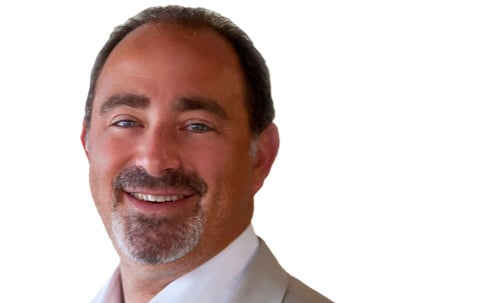LONG BEACH, CA-The new normal in real estate is really what the old normal was—or should have been—an emphasis on fundamentals. That was part of the message yesterday at the annual BOMA International conference at the Long Beach Convention Center here, where panelists talked about the need to get away from the silo-style of management and to focus on collaborating on solutions for customers.
"The new normal is what normal should be,” said James Arce, executive managing director of client solutions at Cushman & Wakefield. He pointed out that the emphasis by smart building managers in today's market "comes down to the individual asset strategy. It is back to fundamentals, the fundamentals of keeping your tenants in the building, keeping your occupancy high and more.”
Arce described collaborating on solutions for customers as the key to success and said there will be more of it as the new generation takes more leadership. He said that the industry will "move away from silos" in what he called "an important cultural revolution."
San Francisco-based Arce was one of the panelists who addressed the topic "Real Estate’s New Normal: A Time of Incredible Challenges and Rich Opportunities" Tuesday at BOMA's 2010 International Conference & the Every Building Trade Show. The event, which drew approximately 3,000 attendees this year, featured a keynote Monday by economist and humorist Ben Stein and the naming of Stream Realty Partners' James Mackey as BOMA's new chair and chief elected officer.
Arce and the other panelists took an in-depth look at what has become the “new normal” in today’s volatile real estate market; how they are positioning their companies for success; how they are increasing operational efficiencies and turning around underperforming assets; and predictions about when the capital markets will turn the corner.
The group drew a sharp distinction between this downturn and the dot-com bust. “The dot-com bust was an over-demand function or people taking more space than they needed. This time, the problem was the capital markets,” Arce said. Unlike the dot-com bubble, this problem is global and it is much bigger.
According to David Sears, an L.A.-based managing director of JP Morgan Asset Services, the real challenge is where the new growth will be. Most panelists said it will come from the biotech, healthcare or education industries, but Sears said that “the unknown of how we are going to come out of it and how fast has created a deer-in-the-headlights feel.” However, Sears pointed out that he is starting to see core buyers coming in and paying lower cap rates in markets where fundamentals have an opportunity to recover.
When panel moderator Kurt Padavano, COO of Bedminster, NJ-based Advance Realty Group asked panelists how much attention is paid to individual assets versus portfolio strategies, panelist Mike Kent, Los Angeles-based US president of real estate management services at Colliers International, replied that there is always the portfolio umbrella. “We are back to those basics that we all know are the primary source of valuating our properties,” Kent said. He also pointed out the importance of education. “If we aren’t educating ourselves through this cycle as to what the new norm is, then we aren’t doing our job.”
Like Arce, panelist Sandra Boyle agreed that in the past, the industry always tended to operate in silos: the leasing silo, the property management silo and so forth. Boyle, who is EVP of development and project management at San Mateo, CA-based Glenborough LLC, said that for the first time in 30 years, people are now coming together in teams. “We are a shop that never had our listing brokers doing our renewals. Now, they are, and that,” she said, “brings everyone into the fold.”
All panelists touched a bit on the idea of property managers and asset managers, and how, moving forward, “property managers have to migrate from their previous mindset and understand the bottom line and implications of the bottom line for the investor,” said Arce. “It is exciting because the property manager is no longer focused just on the operations of the building. The new normal for property managers will be about elevating their mindsets in order to add more values to investors.” Boyle called the new property manager an “enterprise leader.”
Understanding the financials of a property is important for a property manager as well, said Kent. “If you aren’t best friends with your accountant, there is something wrong.”
Sears encouraged any property manager in the room to think about the financial questions that affect properties. “You need to think beyond the envelope,” he said. “It is up to you to try to break down the silo wall.”
As for what tenants are looking for, all panelists pointed out that sustainability is key. “The train has left the station on sustainability and you’ve got to get on that train,” said Boyle. “The ‘Y’ generation will be a big force, and they expect environmental friendly places to work and to live.”
Kent encouraged managers to do work closely with tenants to “understand their business needs and where their growth is. Understanding a tenant’s business model is key to retaining them.” He added that “the retail segment does a good job at understanding its tenant base.”
Sears agreed, pointing out that the manager is the most important person on a property for retaining a tenant. “Understanding the tenant and being anticipatory about their needs is important to retention.” Sears’ words of advice? “Don’t go chasing the new all the time. Do what you do best and start to expand the envelope of what you do well and that is going to make you successful.”
Before the panel discussion, BOMA International president and chief operating officer Henry Chamberlain, along with Advance Realty’s Padavano, presented the 2010 State of the Industry address, providing insight into how the commercial real estate industry is performing, what lies ahead, and the trends to keep an eye on.
Clearly it has been a little bit rocky out there, said Chamberlain, but there are some positives at work, he said, pointing to unemployment on its way to stabilizing and slight increases in available credit from banks as examples.
Padavano has also seen some transaction volume picking up. “Yes, tenants continue to be unsure about the economy, but I am seeing some long term corporate users lock into leases.”
Padavano’s predictions? “The rest of 2010 won’t be that much different than we have seen in the first half. Debt and equity markets will continue to gradually improve as we move through the year; bid-ask spreads will continue to narrow; the banks ‘extend and pretend’ that is going on will continue; valuations will slide for a time with some solid market opportunities in selected markets; and market fundamentals will continue to soften as growth lags.”
The opportunities, according to Padavano, lie in high-quality assets. In addition, “sustainability will continue to be a hot button, along with the transit-oriented developments; and having a building that can leverage technology for tenants.”
The game right now is creating value, said Chamberlain. “My advice? Be aggressive on asset management; fine tune your staff teams—it is important to invest in those teams; stay close to your clients and employees; maintain a long-term perspective and positive outlook.”
He added that “This is a tough time. We will bounce around a bit, but think long term. Have a good attitude. Being as positive as you can creates a positive energy and that helps get business done.”
Continue Reading for Free
Register and gain access to:
- Breaking commercial real estate news and analysis, on-site and via our newsletters and custom alerts
- Educational webcasts, white papers, and ebooks from industry thought leaders
- Critical coverage of the property casualty insurance and financial advisory markets on our other ALM sites, PropertyCasualty360 and ThinkAdvisor
Already have an account? Sign In Now
© 2024 ALM Global, LLC, All Rights Reserved. Request academic re-use from www.copyright.com. All other uses, submit a request to [email protected]. For more information visit Asset & Logo Licensing.








